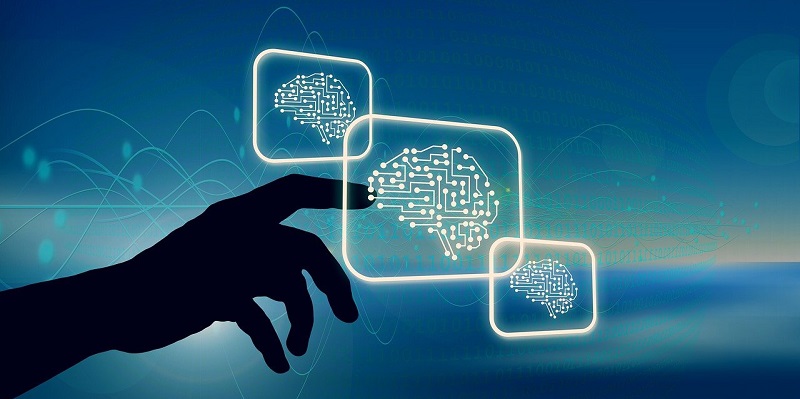In today’s digital world, where data is becoming increasingly valuable, the importance of maintaining privacy while harnessing the power of machine learning cannot be overstated. The implementation of privacy-preserving machine learning techniques is not just a best practice, but a necessity. This article delves into the significance of privacy-preserving machine learning, explores the techniques employed to protect data privacy, examines the challenges involved, and highlights the steps organizations must take to ensure responsible AI development that safeguards individual privacy.
The Importance of Privacy-Preserving Machine Learning in the Digital World
With the rise of data-driven decision-making, organizations are constantly grappling with the challenge of leveraging vast amounts of sensitive data without compromising privacy. Privacy-preserving machine learning offers a solution that allows companies to derive insights and build models from data while respecting the privacy rights of individuals. By combining advanced algorithms and data protection techniques, privacy-preserving machine learning ensures that organizations can extract valuable insights without sacrificing privacy.
Understanding Privacy-Preserving Machine Learning
Privacy-preserving machine learning involves the development and use of algorithms and models that can learn from data while preserving the privacy of individuals. This approach ensures that only aggregated information is disclosed, without revealing sensitive or personally identifiable details. By obfuscating data and employing various techniques, privacy-preserving machine learning enables organizations to use sensitive data while maintaining confidentiality.
The Role of Differential Privacy in Protecting Privacy
Differential privacy is a key technique employed in privacy-preserving machine learning. It introduces controlled random noise to the data, preventing the reidentification of individuals while still allowing accurate model training. By adding noise to query results or data points, differential privacy ensures that personal information remains masked, protecting individual privacy even in the presence of powerful adversaries.
Exploring Federated Learning and Its Benefits for Privacy
Federated learning is another vital technique used for privacy-preserving machine learning. Unlike traditional methods that require centralized data storage and processing, federated learning brings the computation to the data. By decentralizing the training process, organizations can minimize the risk of data breaches while still gaining useful insights. Federated learning allows multiple devices or parties to collaboratively train a model without exposing their local data, providing robust privacy protection.
Challenges in Implementing Privacy-Preserving Techniques
While privacy-preserving machine learning techniques offer substantial benefits, they also present challenges in their implementation. One such challenge is striking a balance between data utility and privacy in differential privacy. The addition of noise can reduce the accuracy of models, necessitating careful consideration to achieve a satisfactory trade-off. Additionally, coordinating decentralized learning in federated settings presents technical hurdles, requiring efficient coordination mechanisms and communication protocols to ensure seamless model updates without compromising privacy.
Adopting a Privacy-by-Design Approach in AI Development
To achieve effective privacy-preserving machine learning, organizations must adopt a privacy-by-design approach. This involves integrating privacy considerations into every stage of AI development, from project initiation to deployment. By embedding privacy as a core principle, organizations can proactively address privacy concerns and minimize risks associated with data handling and model training.
Privacy-Enhancing Technologies for Data Protection during Computation
Privacy-preserving machine learning can leverage various technologies to protect data during computation. Secure multi-party computation enables parties to perform collaborative computations over their private data without revealing individual inputs, ensuring confidentiality. Homomorphic encryption can also be utilized, allowing computations to be performed on encrypted data and maintaining privacy throughout the process.
Fostering a Culture of Privacy and Data Protection
Implementing privacy-preserving machine learning requires more than just technical measures. Organizations must foster a culture of privacy and data protection within their workforce. This involves providing employee training on privacy and data protection, raising awareness of the importance of privacy in AI development. Implementing robust data governance policies and promoting transparency in data handling practices are also crucial elements of creating a privacy-conscious organizational culture.
Staying updated with AI and privacy regulations
As technology advances and privacy regulations evolve, organizations must stay updated to ensure compliance and protect individuals’ privacy. Regular monitoring of AI developments and privacy regulations helps organizations adapt their practices and technologies accordingly. By staying informed, organizations can continuously refine their privacy-preserving machine learning approaches to align with industry standards and legal requirements.
Privacy-preserving machine learning is an essential component of responsible AI development. Organizations must recognize that safeguarding privacy is paramount in the digital age and take proactive steps to ensure data security. By implementing privacy-preserving techniques such as differential privacy and federated learning, organizations can navigate the complexities of data privacy while harnessing the power of machine learning. Adopting a privacy-by-design approach, leveraging privacy-enhancing technologies, fostering a culture of privacy, and staying updated with AI and privacy regulations are vital in striking the delicate balance between data utility and privacy. By prioritizing privacy in AI development, organizations can build trust, protect individual privacy rights, and foster responsible and ethical use of AI.

